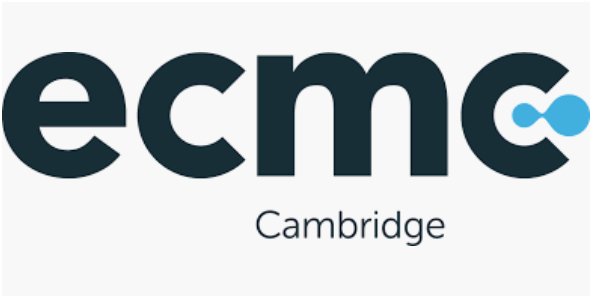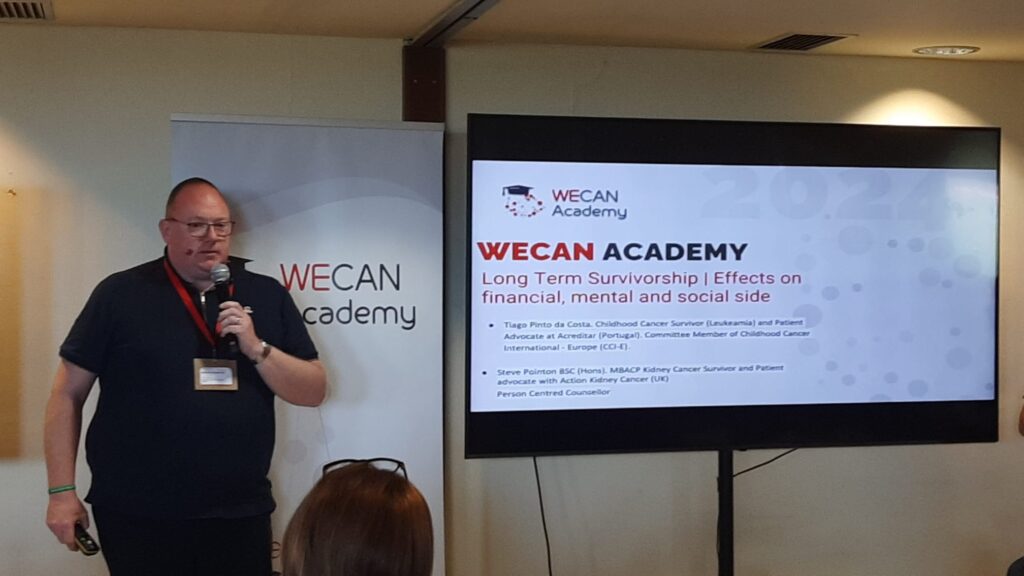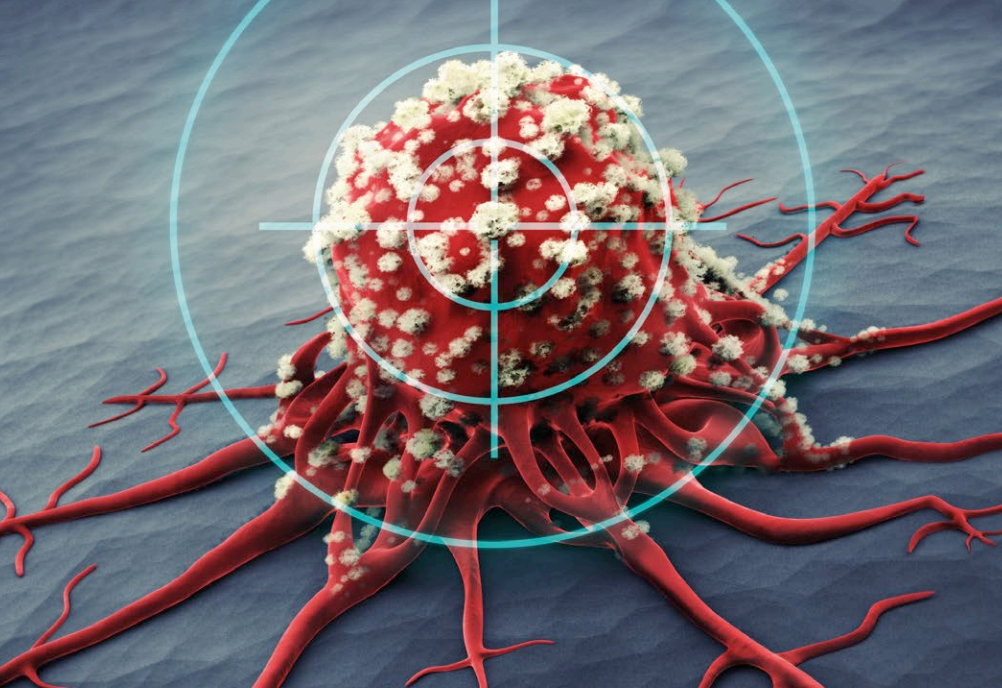Share this Page:
On Friday 27 September 2019, Sharon Kell attended the annual Experimental Cancer Medicine Demystified event held at Cancer Research UK Cambridge Institute on the University of Cambridge Addenbrooke’s campus. This is the second year that this event has taken place, and it was open to researchers, nurses, health professionals, cancer patients and patient representatives.
The day featured talks about personalised medicine, immunotherapy, research into treatments for kidney, blood, ovarian and brain cancer, and an update from the Cambridge Experimental Cancer Medicine Patient and Public Involvement (PPI) group.
The Cambridge Experimental Cancer Medicine PPI group opened the event with an update on their involvement in cancer research. Cancer research is moving towards more personalised medicine with patients at the heart of research, and identification of biomarkers for early detection of cancer. The Cambridge group is the largest National Institute for Health Research (NIHR) centre in the country, and one of 18 Cancer Research UK/NIHR-funded Experimental Cancer Medicine Centres.
One of the main aims of the PPI group in Cambridge is to promote patient and public awareness and involvement in research. They are also involved with grant applications, protocol development, patient information sheets and management of adverse events in clinical trials. The group gives a different perspective on clinical trials and can identify problems with the protocol at an early stage.
Dave Ellwood, kidney cancer patient, opened the session about kidney cancer with his experience of robot-assisted surgery. He also spoke about his involvement in online patient forums following his diagnosis and treatment.
Mr Grant Stewart, urological surgeon at Addenbrookes Hospital, Cambridge gave a summary of the research work that his group are currently undertaking:
- NAXIVA trial is a study of neoadjuvant axitinib for 8 weeks prior to surgery to remove a vena cava thrombus
- WIRE study is investigating the use of PARP inhibitors and VEGF TKIs for 10 days during the wait for surgery
- RAMPART trial is looking at the use of durvalumab plus tremelimumab versus active monitoring after nephrectomy.
Further details about these trials can be found on the KCSN Clinical Trials Database.
Kelly Leonard, senior research nurse spoke about the Cambridge Urology Translation Research and Clinical Trials centre as being a world-leader in translational research. Cambridge has a repository of urology cancer biopsies and a database of molecular information from these samples. These data are used in various research studies, such as EASE, the European Active Surveillance of renal cell carcinoma (RCC) study looking at genetic markers for growth and progression, and PAN, an early detection study using breath biopsies (see the KCSN Clinical Trials Database).
Cancer treatment is moving towards a more personalised approach, whereby genetic profiling of biopsy samples is used to identify genetic changes that drive the development of cancer. These genetic changes can be targeted with specific drugs to overcome resistance to treatment. The aim is to make genetic profiling a routine procedure for the management of cancer.
Richard Baird, consultant in experimental cancer therapeutics, spoke about umbrella and basket trials to look at multiple drug targets (umbrella) or multiple tumour types (basket) in one clinical trial, and the use of biopsies or circulating tumour DNA (ctDNA) liquid biopsies. A global gene database is being developed to help researchers identify genetic mutations in their patients.
Kay Elston, research nurse, spoke about the role of a clinical trials nurse as being a patient advocate to liaise with the investigator and other members of the trial team on the patient’s behalf. Clinical trial nurses work with the clinical teams (specialists, nurses, radiology, pharmacy, scientists, academics etc.), as well as providing a link to the project team at the clinical trial sponsor or contract research organisation (medical monitor, study monitor, data team etc.).
Pippa Corrie, consultant and associate lecturer in medical oncology, gave an interesting presentation on immunotherapy. She described the immune response involving T cells and antigen-presenting cells. She then went on to talk about the receptors (CTLA4, PD-1 and PD-L1) on tumour cells that block the interaction between T cells and antigen-presenting cells to turn off the immune response. She described the action of checkpoint inhibitors, such as nivolumab and ipilimumab, and the challenges of keeping patients safe from immune-related side effects while on immunotherapy.
Only 10-30% of patients respond to immunotherapy; a biomarker for response would reduce the need for unnecessary exposure to immune-related toxicities in non-responders. Hot tumours are full of T cells, while cold tumours do not have T cells and do not respond to checkpoint inhibitors.
Chimeric antigen receptor (CAR) T therapy and tumour infiltrating lymphocytes (TIL) are cell-based approaches to cancer treatment whereby a patient’s tumour T cells are grown outside the body and genetically modified before injecting back into the patient to treat the cancer. However, these treatments are very expensive and can cost around £250,000 per patient.
The whole day was extremely worthwhile and opened my eyes to the research that is currently ongoing to personalise cancer treatments in the future.













